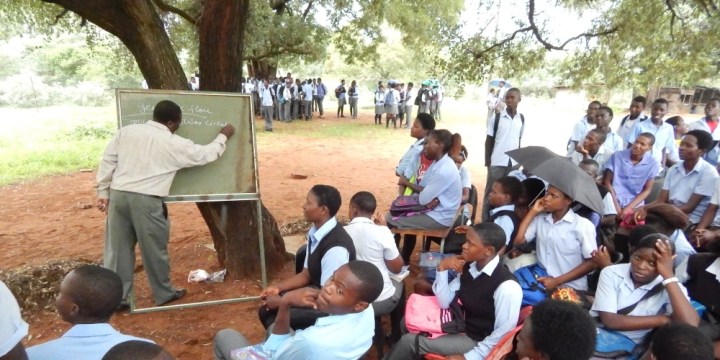OP-ED
Tertiary institutions should adopt rigorous admission criteria for teacher education programmes

Future generations need to be taught by capable and committed teachers.
On 3 January 2019 Angie Motshekga, Minister of Basic Education, announced the results of the 2018 National Senior Certificate (NSC) examination. While the reported results may appear promising at first glance, Nic Spaull, Education Analyst, remarked that Motshekga neglected to account for the unacceptably high dropout rate among pupils. Considering that 489,800 pupils who started Grade 1 in 2007 dropped out before reaching Grade 12, the results of the 2018 NSC examination reiterate concerns that have been raised about the quality of education offered in South Africa.
In response to mounting political and economic pressure to overhaul the South African education system, policymakers have introduced a number of education reforms. Education reforms are typically modelled in accordance with top performing education systems from across the globe, such as Finland, Japan and Singapore. While policymakers can use top-performing education systems as a backdrop to gain a better understanding of the challenges associated with the South African education system, they should be wary of trying to replicate other countries’ secret to success. Policymakers should recognise the differences that exist between South Africa and other countries in order to accurately discern which solutions they can borrow. The arbitrary transfer of existing solutions will write the next chapter to the already exhausting list of failed education reforms.
The majority of top-performing education systems consider teacher effectiveness as one of the most prominent predictors of teaching and learning outcomes. Accordingly, in their search for a sustainable solution to address concerns about the quality of education offered in South Africa, policymakers have begun to turn their eyes to teachers.
While teachers undoubtedly play a critical role in enhancing teaching and learning outcomes, they cannot be expected to overhaul the South African education system by themselves. Other stakeholders, such as tertiary institutions that offer Initial Teacher Education (ITE) and Post-Graduate Diploma in Education (PGDE) programmes, must implement measures to bolster the effectiveness of the future teaching force. Based on the results of my doctoral research and a review of relevant literature, I propose that the admission criteria for teacher education programmes represent such a measure.
In response to the ever-increasing demand for teachers in South Africa, Tertiary institutions have adopted demand-driven admission criteria for teacher education programmes, whether it be ITE or PGDE programmes, that is far less stringent compared to those of other degree programmes. It should, therefore, come as no surprise that teaching has become a “stopgap” or “last resort” occupation for many. Tertiary institutions must adopt rigorous admission criteria for teacher education programmes in order to reverse this trend.
While academic performance may not accurately predict students’ future proficiency in teaching, it matters. Academic performance offers an indication of the extent to which students are prepared for the rigour of tertiary education. Therefore, tertiary institutions should set higher standards for academic performance.
With that said, apart from academic performance, another admission criterion should also be taken into account. As an example, it is necessary to evaluate students’ motivation to pursue a career in teaching as research has demonstrated that career motivation is associated with both employee and organisational outcomes. This will help to attract students who are eager to mould the youth.
Policy makers may argue that the quality of teachers graduating from tertiary institutions is more important than the admission criteria for teacher education programmes. However, to ensure that future generations are taught by capable and committed teachers, I propose that tertiary institutions must revisit the admission criteria for teacher education programmes. DM
Nicola Vermooten is a registered industrial psychologist and PhD candidate, Stellenbosch University


















 Become an Insider
Become an Insider